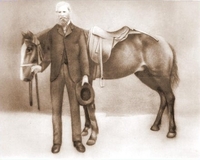
The Free State, formerly known as the Orange Free State, is a province of South Africa. Its capital is Bloemfontein, which is also South Africa's judicial capital. Its historical origins lie in the Boer republic called the Orange Free State and later the Orange Free State Province.

Kroonstad, which consist of suburbs as follows: Brentpark, Constantia, Constantia Park, Dawid Malanville, Elandia, Gelukwaarts, Goedgedacht, Heuningspruit, Industria, Jordania, KoeKoeVillage, Kroonheuwel, Maokeng, Morewag, Noordhoek, Ou Dorp, Panorama, Phomalong, Presidensia, PrisonArea, Seisoville, Suidrand, Tuinhof, Uitsig, Vooruitsig, WestPark and Wilgenhof. Kroonstad is the fourth largest town in the Free State and lies two hours' drive on the N1 from Gauteng. It is the second-largest commercial and urban centre in the Northern Free State, and an important railway junction on the main line from Cape Town to Johannesburg.

The Province of the Orange Free State, commonly referred to as the Orange Free State, Free State or by its abbreviation OFS, was one of the four provinces of South Africa from 1910 to 1994. After 27 April 1994 it was dissolved following the first non-racial election in South Africa. It is now called the Free State Province.
The magistrates' courts are the lowest level of the court system in South Africa. They are the courts of first instance for most criminal cases except for the most serious crimes, and for civil cases where the value of the claim is below a fixed monetary limit.

Motheo was, until the municipal elections of 18 May 2011, a district of the Free State province of South Africa. At the time of the 2011 elections it was disestablished as a consequence of Mangaung Local Municipality being upgraded to a metropolitan municipality.

The Diocese of Cape Town is a diocese of the Anglican Church of Southern Africa (ACSA) which presently covers central Cape Town, some of its suburbs and the island of Tristan da Cunha, though in the past it has covered a much larger territory. The Ordinary of the diocese is Archbishop of Cape Town and ex officio Primate and Metropolitan of the ACSA. His seat is St. George's Cathedral in Cape Town.

The Boer Commandos or "Kommandos" were volunteer military units of guerilla militia organized by the Boer people of South Africa. From this came the term "commando" into the English language during the Second Boer War of 1899–1902 as per Costica Andrew.

The N8 is a national route in South Africa that connects Groblershoop with Maseru in Lesotho via Kimberley and Bloemfontein. It is maintained by the South African National Roads Agency.
The Diocese of Kimberley and Kuruman is a diocese in the Anglican Church of Southern Africa, and encompasses the area around Kimberley and Kuruman and overlaps the Northern Cape Province and North West Province of South Africa. It is presided over by the Bishop of Kimberley and Kuruman, until recently Ossie Swartz. On 19 September 2021 the Electoral College of Bishops elected to translate the Right Revd Brian Marajh of George to become the 13th Bishop of Kimberley & Kuruman. The seat of the Bishop of Kimberley and Kuruman is at St Cyprian's Cathedral, Kimberley. There had been so far 12 bishops of the See, though one of these served for two different periods of time.
William Thomas Gaul (1850–1927) was Rector of All Saints Church, Du Toit's Pan, Kimberley, afterwards of St Cyprian's Church, Kimberley, Rural Dean of Griqualand West, and Archdeacon in what was still the Diocese of Bloemfontein, before being elected the second Bishop of Mashonaland, where he styled himself "the smallest bishop with the largest diocese in Christendom." He officiated at the funeral of Cecil John Rhodes and helped draft the Rhodes Trust Deed.

The Volksblad was an Afrikaans-language daily newspaper published in Bloemfontein, South Africa, and distributed in the Free State and Northern Cape provinces, where it was the largest Afrikaans daily. It was South Africa's oldest Afrikaans until it closed in 2020. The paper was owned by Media24.
The Brotherhood of St Augustine of Hippo was an Anglican brotherhood founded in the Orange Free State, South Africa in 1867, and was based at Modderpoort from 1869, in the Diocese of Bloemfontein.
The Revd George Mitchell was a missionary priest of the Anglican Church serving in the Free State, South Africa, from 1864, and afterwards at Kimberley, who pioneered early translation of liturgical Epistles and Gospels and portions of the Book of Common Prayer into Setswana. He was born near Mintford in England in 1835 and died in Kimberley, South Africa.
The Revd William Crisp was a missionary priest of the Anglican Church in the Diocese of Bloemfontein, South Africa, who served there from the mid-1860s. The Society for the Propagation of the Gospel described him as “the first and greatest apostle of the native races” in the central part of South Africa, who, it added, “had sympathy with the native point of view”. Crisp was born at Southwold, England, in 1842. He died in Cape Town in 1910.

Motheo FM is a South African community radio station based in the Free State.

Orange Free State Command was a command of the South African Army, active from c. 1933 to c. 1999. Its headquarters was at Bloemfontein, seemingly for a period at the Tempe airfield, later to become the Tempe Military Base.
Walton Zacharias Fenyang was a South African politician. He was a central figure of the political establishment of Thaba Nchu as an independent reserve in South Africa. He was one of the Barolong members of the Thaba Nchu board.
The Right Revd Dintoe Stephen Letloenyane has been Bishop of the Free State since 2013. He was consecrated on 9 March 2013 at the University of the Free State.

General Johan Isak Jacobus Fick was the founder of Ficksburg, a town in the Free State province, South Africa. After the Basotho Wars, peace was made and the town named after Johan Fick. He was also known as Commandant Generaal Johan Fick.











